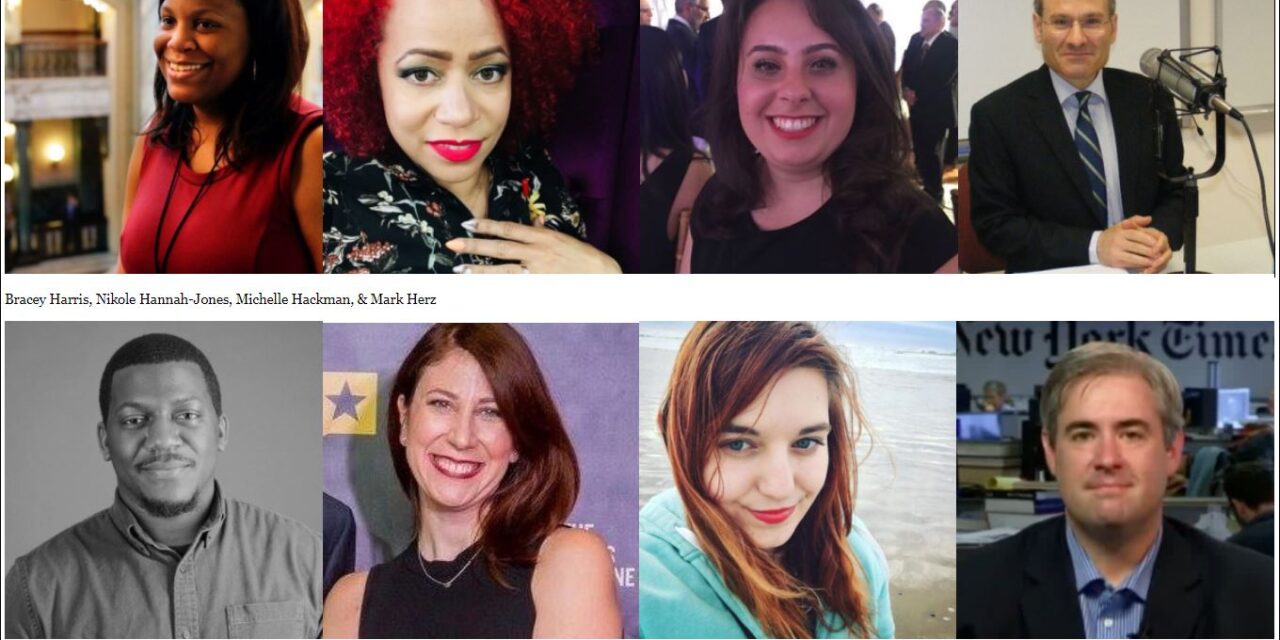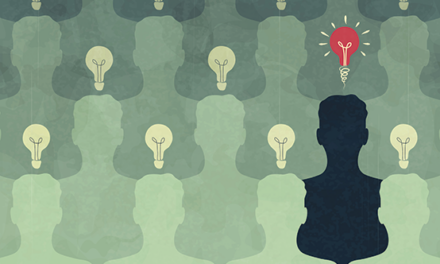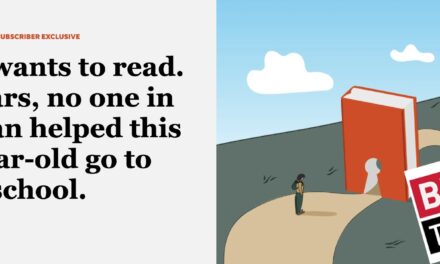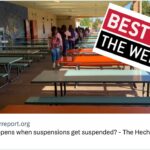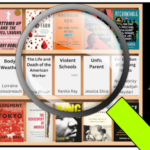From learning how to ask a neutral question to becoming confident enough to raise one’s hand in the newsroom, education journalists tell stories about receiving guidance and encouragement at times they needed it most.
By Kristen Doerer
Celebrated newsroom mentors such as the New York Times’ David Carr and the PBS NewsHour’s Gwen Ifill seem to have helped almost every big-name reporter you can think of.
When Ifill passed away in 2016, editors and reporters tried to pull together an obituary for a woman who was not only a terrific journalist and anchor but also a friend, a steady voice and warm presence, and a mentor. One thing became clear in her passing: just how many reporters’ lives she touched.
When Carr died a year earlier, accolades poured in for both his brilliant writing and, as Mikaela Lefrak wrote in The Atlantic, his “unusual gift for recognizing young talent.” Not only was Carr great at picking talent, according to Lefrak, he also exhibited “an equally unusual willingness to pull that talent up the ladder with him.”
What about mentorship in education journalism? As newsrooms have cut back on staff, not only are there fewer potential mentors but less time for the remaining veterans to mentor.
And yet, some people like Carr and Ifill made the time.
“Along the way at these corners that you turn in life, there are people, if you’re fortunate, who can nudge you in a direction, or urge you to be courageous,” Ifill once told an interviewer. “That, to me, is the essence of what mentoring is.”
While some of the dozen or so education reporters contacted by The Grade scratched their heads as they tried to come up with a particular moment or name a specific mentor, others were eager to credit journalists who had changed their careers.
The kinds of help they received varied widely – from learning how to ask a neutral question to becoming confident enough to raise one’s hand in the newsroom. They learned how to pitch successfully, and report more aggressively.
The common thread? They received guidance and encouragement at times they needed it most.
Here are a few of their experiences.
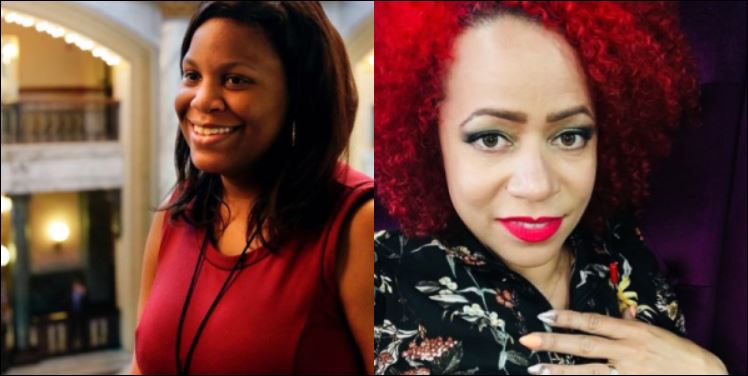
Bracey Harris (left) and Nikole Hannah-Jones
COMMUNICATING “I’VE GOT THIS”
Bracey Harris, Clarion-Ledger
Bracey Harris hasn’t had a mentor in the traditional sense but she said that a single conversation during a diversity mentorship breakfast at the Investigative Reporters and Editors (IRE) conference in 2016 with New York Times reporter Nikole Hannah-Jones empowered her to raise her hand in the newsroom, strengthened her reporting, and may have helped her get a job.
“[Hannah-Jones] really sort of imparted into me this sense of looking for the stories that aren’t being told and also tapping into my experiences as a person of color and how I experienced education growing up in Mississippi,” said Harris.
“For example, even reporting on the state’s teacher shortage … When I look at it I don’t just look at it as we need teachers, I also look at it as which student populations are experiencing the brunt of it, and more often than not, it’s children of color or children from poor backgrounds,” Harris said.
At the time she met with Hannah-Jones, Harris was a digital producer at the Clarion-Ledger. The newspaper’s education reporter had left just as a big education story began unfolding in Jackson, Mississippi, where the paper is based. Harris was interested in digging in deeper.
Hannah-Jones “really talked with me about how you pitch, and how you go ahead and do some of your research and background reporting, and you start, and then you go to your editor… so there’s not that chance of [anyone saying] ‘Eh, I don’t know if she can do it or not.’”
Harris followed that advice when she returned from IRE, which put her on a trajectory toward becoming the paper’s education reporter, a role she’s been in for nearly two years.
The Grade takes a deeper look at education journalism. Sign up here for the free weekly newsletter.
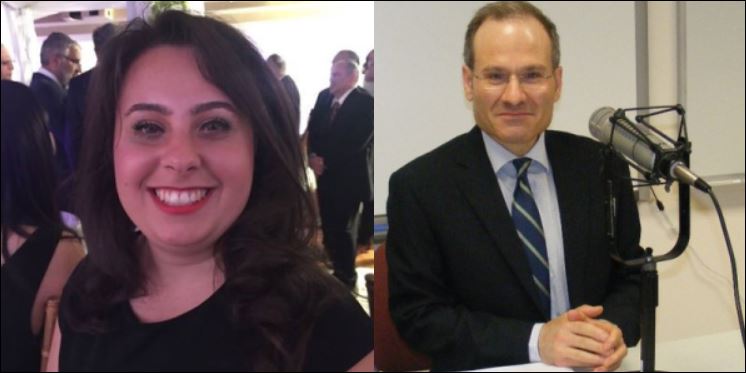
Michelle Hackman (left) and Mark Herz
DRIVE TIME
Michelle Hackman, Wall Street Journal
“I don’t have a journalism degree, so everything I learned has just been good bits of advice I gathered,” said Michelle Hackman, a national education reporter at the Wall Street Journal. But a mentorship experience when she was a college student working at a local public radio station in southern Connecticut helped her enormously.
It began with a cold email to Mark Herz of WSHU while she was a freshman at Yale. Then an “All Things Considered” host, Herz told Hackman to work at the station over spring break and offered to drive her to the station. The trial run led to a summer internship. “We drove in every day over the summer together back and forth, and the whole time we would talk about journalism,” said Hackman. “We’d listen to Diane Rehm’s radio show, and we’d talk about the way she would artfully ask questions.”
But the exchanges didn’t end once they reached their destination. At one point, Hackman was doing a story on community policing in New Haven and went to Herz. “I needed a lot of help putting my tape together because I’m blind, so he had to work with me a lot on cutting tape, and mixing sound, and things like that. [Herz] got to listen to the questions that I asked, and I remember, because to this day, I can hear his voice, and I feel so embarrassed… He was like, ‘You are asking leading questions!’”
Based on that experience, Hackman said, “I ask really absurdly neutral questions.”
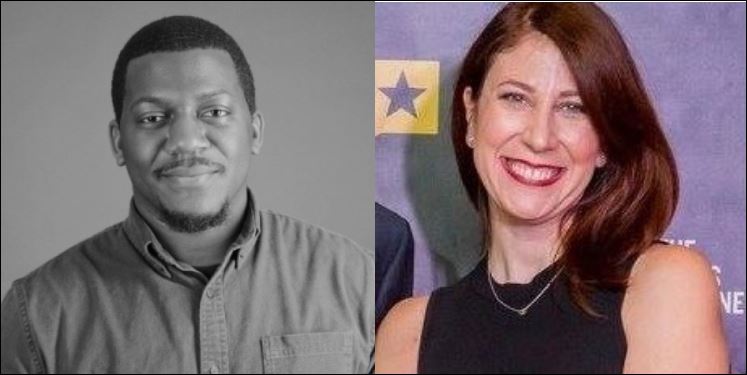
Adam Harris (left) and Amanda Zamora
THE PEOPLE WHO BELIEVE IN YOU
Adam Harris, The Atlantic
The new higher education reporter at The Atlantic can list a slew of mentors – all “people who really believed in me early on.”
“Kate Dailey, who gave my first shot reporting for a national outlet [BBC], called me back for a follow-up assignment after my first reported piece [on Styrofoam bans]. And I remember thinking: Okay, I’m not so bad at this, she trusts me to do it again,” said Adam Harris. “Then, when it came time to apply for full-time newsroom positions, she helped me with my resume, and gave me a bunch of encouragement when I received one of the — it feels like — dozens of rejection letters.”
But Harris has benefited from several other mentors since then, including former ProPublica colleagues Amanda Zamora, Topher Sanders, and Ginger Thompson.
“I could tell Amanda Zamora believed in me when she gave me a shot,” said Harris of being hired for his first full-time newsroom job as a social media editor at ProPublica. “She really didn’t have to take a chance on a guy who had a couple of national bylines and a digital marketing company, but she did, and every step since then she’s been there when I’ve really had questions — whether it’s about career moves or just to talk.”
“Having a good mentor is probably the most important thing for reporters, especially up-and-coming reporters,” said Harris. A lot of what’s most needed, said Harris, is encouragement.
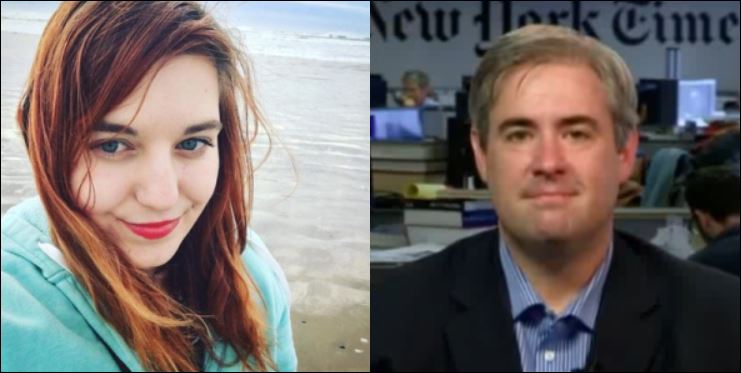
Bethany Barnes (left) and Matt Apuzzo
JUST KNOCK ON THE DOOR
Bethany Barnes, The Oregonian
Bethany Barnes says she is an audacious education reporter in part because of her mentors.
The award-winning journalist learned her direct reporting style when she was still at the Las Vegas Review-Journal.
“I was covering the city of North Las Vegas, and I had learned that the mayor had been investigated for having child pornography on his iPad, and [the investigation] had sort of dissolved and not gone anywhere. But I wasn’t quite sure how to get the reporting done. I called a mentor of mine, [New York Times’] Matt Apuzzo, and I said, ‘Can I talk through this story with you?’ And he goes, ‘Oh my goodness, how long do you want to sit on this and keep this from the community? Bethany, the source told you because you’re the community’s journalist. They did not tell you because you’re the community’s priest. They are looking to you to figure this out.’ I think about that line a lot.
“And he said, ‘What you’re going to do is you’re going to get off the phone with me. You’re going to wait until the evening. You’re going to drive to the police chief’s house. You’re going to tell him that you know about this, and you’re going to tell him that because you know about this, he should talk to you, and you’re just going to knock on his door.’
Barnes followed Apuzzo’s advice and got the story. The experience would lead to a pattern of door knocking that continues to this day.
“I never know why someone would or wouldn’t talk to me [on the phone or by email], and asking them is a lot easier than sitting in my own anxiety at my desk.”
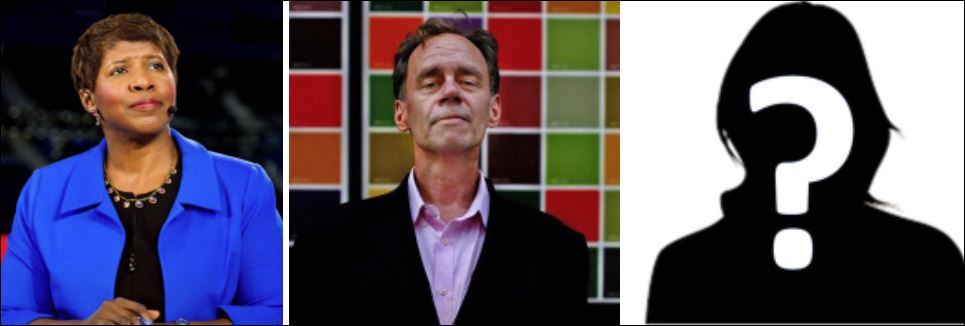
Who is an education journalism mentor along the lines of Ifill or Carr?
For many of the education journalists we spoke to, mentorship was crucial to their becoming a well-rounded, confident reporter. But finding that support and guidance wasn’t always easy.
Barnes said she received almost no mentorship at her first paper, which is why she began reaching out to journalists whose work she admired. “I think people stepping up and mentoring outside of their newsroom is important,” she said.
The Education Writers Association has tried to meet some of the need through public editor Emily Richmond and its New to the Beat program. And some young journalists have found mentorship through landing fellowships with explicit mentorship components.
But some feel that, like journalism itself, mentorship too often benefits those who have connections.
“The lack of diversity in journalism is not a pipeline issue, it’s a hiring and mentorship issue,” said USC journalism professor Laura Castañeda during the EWA national conference in Los Angeles.
The AP’s race and ethnicity reporter Jesse J. Holland took that thought a step further: “Find someone to mentor,” he said. “They don’t need to be at your organization.”
Or they can be. Either way, the need for mentorship has never greater as newsrooms are being asked to do more with less and the need for solid, reliable reporting is at an all-time high.
What can you offer a new-to-the-beat reporter?
Kristen Doerer is a freelance journalist, based in Washington, DC. Follow her on Twitter @k2doe.
Her previous columns include 11 essential books for education reporters in 2018, Fixing the fellowship model, Best education journalism of 2017, and Not just any high school story: How a ProPublica immigration reporter profiled a Long Island high school student trying to get out of MS-13.


